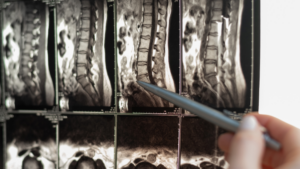Recently we explored current research which indicates lack of good quality, refreshing and restorative sleep is twice as likely as any other factor to be causative in the development of generalized body pain. So if you’re suffering from:
- widespread body pain
- generalized aching across the shoulders and arms
- diffuse pain in buttocks, hips and legs
- a diagnosis of fibromyalgia
- a diagnosis of polymyalgia rheumatica
- whole body aches and pains
….you may benefit greatly from longer duration and better quality sleep. Nearly half of Americans are suffering from disturbed sleeping patterns….so the question becomes, “How in the world do I get a better nights sleep without using medication?”
While there is no single answer silver bullet to this question, there are some remarkably affective measures one can incorporate to significantly increase sleep duration and quality…so let’s explore a few:
1. Sleep in absolute darkness. No night lights, no open blinds letting street lamp light in, no light from a hallway and not even your clock radio light! Move your clock completely away from your bed and have the light facing away from your sleep space…or better yet get a clock with no internal illumination at all! Even a dash of light can alter melatonin and seratonin levels in the body by stimulating the pineal gland….so avoid all light.
2. Move any and all electronic devices away from your bedside….cell phones, clock radios, wireless telephones and anything that generates an electromagnetic field. Such fields can disrupt the pineal gland and once again alter seratonin and melatonin levels which help regulate sleep.
3. Keep your bed only for sleeping. If your used to watching television or working in bed, it becomes far more difficult to feel your bed is a place for slumber and letting go.
4. While it may seem to be for children, establish a bedtime and wake time which you maintain…even on weekends. This helps your body get into a sleep/wake rhythm and cycle making it easier to fall asleep and wake up in the morning.
5. Keep the temperature of your room 70 degrees or less….studies show 60-68 degrees to be the optimal sleeping temperatures.
6. Again, this seems designed for a child…but don’t drink beverages two hours prior to going to bed and use the restroom right before resting….this minimizes the likelihood of arising to use the bathroom.
7. No TV right before bed…it’s too stimulative to the brain and creates difficulty falling asleep and staying there. Better yet…get the TV out of your bedroom altogether!
8. Avoid caffeine….several studies have demonstrated the effect of caffeine long after it’s been ingested…so that afternoon coffee or tea or a coke with dinner may be a culprit! Be aware some medications have caffeine…including diet pills and some headache drugs.
9. Avoid alcohol….while it may help you drift off, frequently the effect is short lived and one awakens without being able to drift back to sleep. Also, the sleep induced by alcohol isn’t the same or as deep as our normal sleep therefore decreasing the healing and restrorative benefits of sleep.
10. Put any work away one or two hours prior to going to bed….that way your mind can unwind and not be jazzed about deadlines or projects the next day.
While this is a good start toward measures that can be taken to improve sleep, there are many more. This brief over-view has been directed to the affect a lack of sleep has on body pain but yet more new research delves into the importance of sleep on weight gain/loss, intellectual capacities, mood, immune function and even cancer.
So never underestimate the power and necessity of a good nights sleep.



